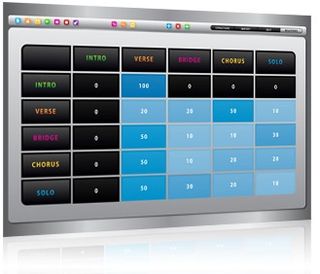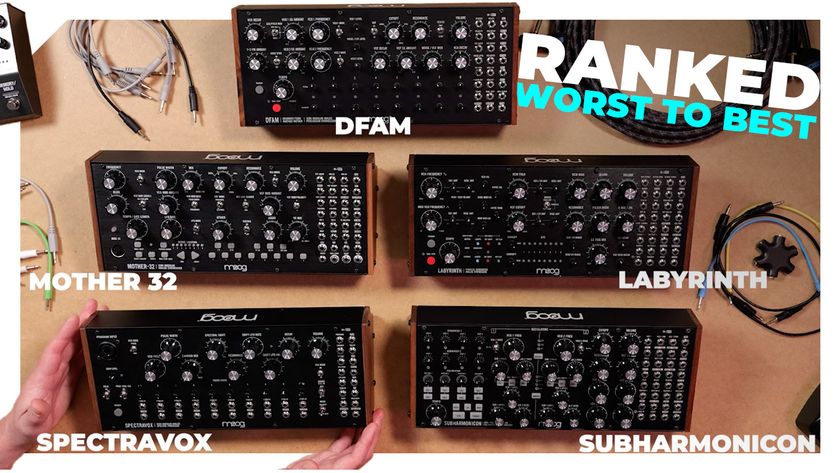Interactive music formats MPX4 and MT9 offer alternative to MP3
Two new music formats, MPX4 and MT9, offer new ways for listeners to interact with and experience music, and claim to be alternatives to MP3.
While MP3s are adequate for delivery of straightforward audio, every time you listen to a certain song, you'll hear exactly the same thing… and there's little you can do about it. A few new formats are surfacing, however, that are aiming to deliver a more interactive experience.
First of all, there's MXP4 from Musinaut, which launches officially in Q3 2008. It's being described as "an invaluable tool for artists, enabling them to create multiple interpretations of a given song - variations that, once combined, generate an astounding and unlimited pool of listening options!"
Musicians create MXP4 files using the saucy-sounding Skinvaders, which is not some sort of racy 'art' movie but a content creation tool. It's currently in the beta stage, although you can sign up to try it out. Here's one of its screens:

Using the Skinvaders tool, you load in the separate tracks (eg, drums, bass, etc) that make up your song, shape them into patterns, and then cobble together variations called Skins. According to the website, the tool is compatible with apps such as Pro Tools and Cubase, and files like WAV, AIFF and REX. Musinaut suggest that, in addition to offering up remixes, you could supply vocals in multiple languages, offer different takes of the same song, and so on.
Thanks to a scripting system, playback need not be linear either, allowing listeners to enjoy music in a unique, unpredictable manner. All the Skins are rolled into one MXP4 file, which can also contain additional images and text info, and is played back using the forthcoming MXP4 player.
And here's another gratuitous pic of the tasty-looking Skinvaders editor:

Another intriguing format is MT9, which will allow the listener to alter the volume of different parts of the mix. From what we can discern, it's basically a multichannel audio format with a mixer built into the player, so you could, for example, turn down the guitars, solo the vocal, etc.
As cool as MT9 sounds, it does throw up some concerns. Do we really want to make it that easy for others to get at the constituent parts of our songs? And for some artists, the idea of putting the mix in the hands of the listener is not so appealing, as they would prefer their tunes to be heard as intended. Still, for the more adventurous, it could be a refreshing new way to present your music. There's a more in-depth story and some links over at MusicRadar.
MT9 and MXP4 file sizes will, presumably, be somewhat larger than your average MP3 due to all the extra data contained within them, and we've seen little mention of the kind of sound quality that they can present. The creators of both formats reckon that they're successors to MP3, though we can't realistically see them taking over anytime soon, if at all. That's not to say there isn't a place for them, though, and MXP4 in particular looks like it could be a great way to get more out of a song that you've already got in MP3 format.
Some final food for thought: vinyl sales are on the up, it seems.
Get the MusicRadar Newsletter
Want all the hottest music and gear news, reviews, deals, features and more, direct to your inbox? Sign up here.

“He was like, ‘You’ve got it all wrong, man": Mumford & Sons reveal what Neil Young told them about the way they were approaching their live shows and album recordings

Dog Paw just invented a controller that looks like a drum pad but plays like it crossed a weighted piano with a violin…








